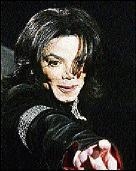MJ's death ruled a homicide
Published: Tuesday | August 25, 2009

Jackson
AP:
The Los Angeles County coroner has ruled Michael Jackson's death a homicide and a combination of drugs was the cause.
A law-enforcement official, who wished to remain anonymous, told media the finding makes it more likely criminal charges will be filed against the doctor who was with the pop star when he died.
Forensic tests found the powerful anaesthetic propofol acted together with at least two sedatives to cause Jackson's death.
Manslaughter investigation
Dr Conrad Murray, a Las Vegas cardiologist who became Jackson's personal physician weeks before his death, is the target of a manslaughter investigation by the Los Angeles Police Department.
An unsealed search warrant affidavit yesterday in Houston includes a detailed account of what Murray told investigators.
According to the document, Murray said he had been treating Jackson for insomnia for about six weeks with 50mg of propofol every night via an intravenous drip. But he said he feared Jackson was forming an addiction to the anaesthetic, which is normally used in hospitals only, and was attempting to wean his patient by lowering the dose to 25mg and adding the sedatives lorazepam and midazolam.
That combination succeeded in helping Jackson sleep two days prior to his death, so the next day, Murray told detectives he cut off the propofol and Jackson fell asleep with just the two sedatives.
Injections
Then around 1:30 a.m. on June 25, starting with a 10-milligram tablet of Valium, Murray said he tried a series of drugs instead of propofol to make Jackson sleep. The injections included two milligrams of lorazepam around 2 a.m., two milligrams of midazolam around 3 a.m., and repeats of each at 5 a.m. and 7:30 a.m., respectively.
But they did not work.
Murray told detectives that around 10:40 a.m., he gave in to Jackson's "repeated demands/requests" for propofol, which the singer referred to as his "milk". He administered 25 milligrams of the white-coloured liquid, a relatively small dose and finally, Jackson fell asleep.
Murray remained with the sedated Jackson for about 10 minutes, then left for the bathroom. No more than two minutes later, he returned and found Jackson had stopped breathing.
"There's no surprise there" that death could result from such a combination, said Dr David Zvara, anaesthesia chairman at the University of North Carolina at Chapel Hill.
"All those drugs act in synergy with each other," Zvara said. Adding propofol on top of all the other sedatives "tipped the balance".
Besides the propofol and two sedatives, the coroner's toxicology report found other substances in Jackson's system but they were not believed to have been a factor in the singer's death, the official said.








